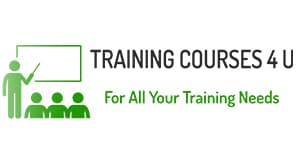CPCS vs NPORS: Which is Best?
The choice between the NPORS and the CPCS card can be confusing for those who want to get training to use plant machinery. In this article, we will look at how the courses differ to find out if they are the right choice for you.
What is CPCS?
The CPCS card scheme was created to prove the skills of plant operators. It is based on professional competence and health and safety awareness, which are essential qualities for plant operators.
If you operate plant equipment, then in the past most employers will want you to hold a card from the CPCS scheme, which has historically been the leading scheme of this type. Workers must have relevant theoretical and practical training in order to hold a CPCS Red Card.
What is NPORS?
An alternative to the CPCS scheme is NPORS. It offers the same accredited training and registration as CPCS, and it also offers verification in the same way as EUSR Plus does. NPORS has become one of the most recognised accredited training schemes in the UK.
The NPORS became an 'accepted record scheme' in the UK in 2014, meaning that it is equivalent to the CPCS. In the same way that the CPCS cards do, NPORS cards can carry the CSCS logo. This was done to make it easier for employers to identify valid card schemes and cards, as part of a drive to bring all card schemes under a one logo policy.
It can easily be argued that NPORS offers more flexibility than CPCS, which is one of the reasons some companies prefer NPORS. In the same way as CPCS, NPORS ensures compliance with strict standards. NPORS also has cost savings over CPCS.
What is The Difference Between NPORS and CPCS?
Basically, there isn't a lot of difference between CPCS or NPORS. The result and learning outcomes are the same, and the ways to achieve them are also the same.
The pros and cons of the schemes will be dependent on your preferred learning style, budget, and companies that you work with.
Almost every construction site in the UK will accept CPCS as a form of accredited training on plant machinery because it is so widely recognised. However, it can be more expensive and take longer to get the accreditation you want if you choose to use the CPCS.
The major plus for NPORS is that it is a cost-effective alternative to CPCS. The NPORS training still ensures compliance with strict industry standards in the exact same way that CPCS does. You can do training on-site, with your own machinery, or at the training provider's site. But with CPCS, training is restricted to certified centres.
Some in the construction industry still think that the CPCS scheme is a superior one to NPORS, so some firms may request that plant operators hold the CPCS cards. You might want to take this into account when deciding between CPCS and NPORS. However, the NPORS card is an alternative to the CPCS and most major build companies will accept it.
How to Get Your NPORS or CPCS Card
We can help you get the card that you need, whether it is the NPORS card or the CPCS card. If you are unsure if you need the CPCS or the NPORS card we can talk you through the options.
We offer a selection of CPCS courses including the CPCS A61 Appointed Person Novice and the A09 Forward Tipping Dumper & CPCS A31 Ride on Roller Novice courses. You can see the full range of CPCS courses here.
We can also deliver NPORS training on-site for employers, including NPORS Excavator Training, as well as NPORS Dumper Training and NPORS Telehandler Forklift Training. You can see all our NPORS courses here.
Please give our team a call to speak with someone if you would like to discuss or seek advice on which scheme is most suitable for your needs.
